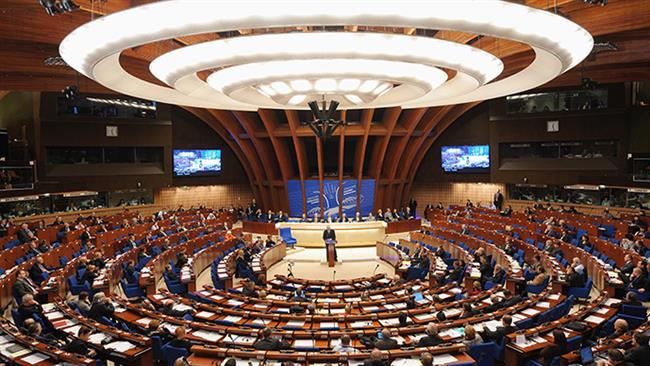
RNA - On Tuesday, the 47-member Parliamentary Assembly of the Council of Europe (PACE) voted 113 in favor of the procedure against Turkey versus 45 against. The assembly called on Turkey to promptly lift the state of emergency, and free jailed lawmakers and journalists.
The vote at the Strasbourg-based assembly is set to further sour relations between Turkey and the European Union.
EU lawmakers are scheduled to debate relations with Ankara on Wednesday, and the bloc's foreign ministers will discuss the situation on Friday. EU leaders are expected to exchange viewpoints on the issue when they meet over United Kingdom's planned withdrawal from the union, commonly known as Brexit, on Saturday.
The Turkish Foreign Ministry has reacted angrily to the vote, strongly condemning it as an “unjust decision.” The ministry argued that PACE’s move to put it on its monitoring watchlist has left Ankara with no choice but to reconsider its relations with the body.
“Deciding to re-open the monitoring procedure on Turkey... under the guidance of malicious circles at the PACE is a disgrace to this organ, which claims to be the cradle of democracy,” the Turkish Foreign Ministry said in a statement.
The statement added that xenophobia and Islamophobia are “spreading with violence” across Europe.
Turkey has been trying to join the EU since the 1960s, but the formal negotiations started in 2005. However, the process has been mired in problems, and only 16 chapters of the 35-chapter accession procedure have been opened for Ankara so far.
Relations between Ankara and the EU have further deteriorated following the botched putsch against Erdogan, which Ankara claims to have been organized by US-based opposition cleric Fethullah Gulen.
Over 240 people were killed and more than 2,100 others injured in the violence, which Gulen has strongly condemned and denied any involvement in. Tens of thousands of people, including military personnel, judges and teachers, have been suspended, dismissed or detained as part of the post-coup crackdown.
On November 24, 2016, the European Parliament adopted a non-binding motion by 479 votes to 37, with 107 abstentions, calling for “a temporary freeze of the ongoing accession negotiations with Turkey.”
Turkey called on the EU to resume the negotiations in January.
Speaking in an interview with the German newspaper Bild am Sonntag on March 19, European Commission President Jean-Claude Juncker warned Turkey against any return of the capital punishment, saying the measure is a "red line" in Ankara’s stalled bid for membership in the European Union.
“If the death penalty is reintroduced in Turkey, it would lead to the end of negotiations,” Juncker said.
The comments came a day after Erdogan said he would seek to reinstate the measure “without any hesitation” after the April 16 referendum on expanding presidential powers.
847/940